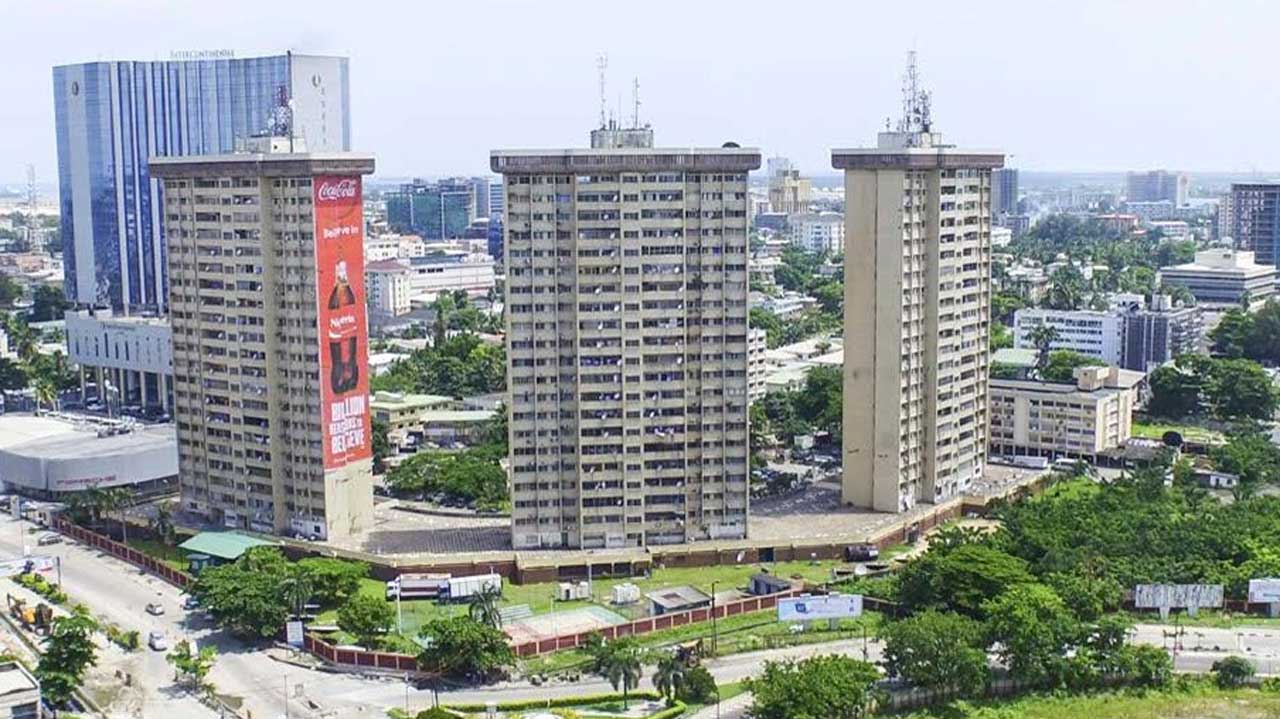
Nigeria ranked low in global real estate transparency index
How country can improve on rating, by experts. Nigeria has scored low in the 2022 Global Real Estate Transparency Index (GRETI) released by JLL and LaSalle Investment Management. Out of 156 cities across 94 countries and territories covered globally, Nigeria was ranked 60.
GRETI has been charting the evolution of real estate transparency across the globe since 1999. Updated every two years, this edition, the 12th, is based on a comprehensive survey of availability and quality of performance benchmarks and market data, governance structures, regulatory and legal environments, transaction processes, and sustainability instruments.
The report revealed a widening transparency gap, as leading countries pull further ahead and set higher standards, from new regulations covering energy efficiency and emissions standards for buildings and climate risk reporting; to raising the bar for Anti-Money Laundering (AML) and beneficial ownership reporting.
It also provides deeper data on everything from office utilization rates to niche property types, supported by the rapid uptake of technology. Progress lower down the global rankings has been slow, as many jurisdictions plateau or even regress and they will need to move faster to meet heightened expectations.
Pressure has continued to grow for the real estate industry to meet the challenge of decarbonization. Sustainability – and the race to net zero emissions – has become the new marker of transparency as investors, companies, governments, and the public look for clear long-term targets, regulatory standards, and metrics to measure their environmental impact and risk.
Sustainability has been the biggest driver of transparency improvements across markets in GRETI 2022, with an increasing number of countries and cities setting mandatory energy efficiency and emissions standards for buildings and the more widespread adoption of green and healthy building certifications. The leading markets are now also beginning to mandate sustainability reporting from companies and are collecting public building-level information on energy efficiency and emissions.
However, sustainability measures remain among the least transparent globally , and the fractured regulatory landscape – with different standards being set at the municipal, state, regional, and country levels, and a proliferating array of sustainability credentials, benchmarks, and standards – is making it increasingly difficult for investors and companies to navigate and understand their responsibilities.
Alignment of regulatory initiatives, harmonization of targets, and more standardized data will be needed to help improve transparency and enable companies to achieve their decarbonization targets.
Besides, the drive to improve productivity and uncover new revenue streams in the industry, as well as to respond to changes in how we live and work after the COVID-19 pandemic – has spurred a rapid increase in the use of real estate technology platforms. The availability of new, high-frequency data and more granular data is boosting the transparency of real estate in ways that were unimaginable just a decade ago.
In some countries, the result is a more in-depth understanding of buildings and markets than ever before, from real-time occupancy or foot-traffic tracking to data aggregators, compiling information on developing asset types, and even the use of building and city-level digital twins for urban planning and forecasting.
The maturing real estate technology ecosystem has the potential to significantly boost transparency. However, the use of new technologies is highly varied across organizations and markets, the landscape of solutions and providers are complex, and many tech standards are specific to individual companies or use cases.
The Sub-Saharan Africa region has seen improvements continue to stall for the third consecutive survey, following limited progress in 2018 and 2020. Kenya launched Ardhisasa (a national land information system) and new beneficial ownership regulations.
Nigeria gained in the latest rating due to the establishment of Lagos State Real Estate Regulatory Authority and the development of an online portal for planning applications.
Chief Executive Officer, LaSalle Investment Management, Mark Gabbay, said: “We believe that a robust global benchmark is an essential tool for the real estate industry. Transparency is the foundation, which allows corporate occupiers, investors and lenders to operate and make decisions with confidence.
“We very much hope that our 2022 edition meets this challenge and provides a truly objective assessment of real estate transparency across the world, which in turn contributes to higher standards that ensure healthy real estate markets that work for all stakeholders.”
Experts, however, believe that Nigeria can improve more in ranking, if there is deliberate and concerted efforts in building real estate data infrastructure, enthroning cashless economy, optimising development approval and control processes, liberalising issuance of property titles and establishing title registry, securitising real estate assets and adopting technology in the real estate development.
The Managing Director, NISH Affordable Housing Limited, Yemi Adelakun, said lack of essential data must have been responsible for the low ranking of Nigeria in the index. For example, Nigeria’s housing deficit figures have been difficult to ascertain or estimate over the years.
He said: “This is a major challenge for growing real estate sector in Nigeria. Data is vital for planning, implementation, monitoring, evaluation and reporting in all sectors, especially in real estate.”
According to him, the prevalent cash economy makes tracking and trailing funds invested in real estate a daunting task, while huge dead capital locked up in Nigeria’s real estate arising from difficulties in obtaining property titles and the consequential effect on securitisation of real estate assets.
“Inefficient process of development approvals and ineffective development control resulting in incessant building collapse may also have been responsible for the low ranking,” Adelakun added.
Vice Chairman, Nigerian Institution of Estate Surveyors and Valuers (NIESV), Lagos State branch, Mr. Gbenga Ismail, said: “Our market is opaque. The Nigerian property marketplace is not clear and consistent. For this reason it is difficult for them to be confidence in our market.”
Ismail, who is the Vice President, Lagos Chamber of Commerce and Industry, called for improvement in some the efforts being made in land registry, consent process, regulation and data capture.
He said: “Once there is consistency in the market fundamentals then clarity and transparency will come naturally. Documentation, standardisation, process standardisation and efficiency, data integrity all needs to be apparent.”
The President, Real Estate Developers Association of Nigeria (REDAN), Aliyu Wamakko, said there must be a shift in housing provision and government concentrating on policy formulation.
According to Wamakko, there should be a policy by government that all monies budgeted for housing should be channeled through the private sector. Such policy, he said, would create employment for the youths, rejuvenate the economy and provide affordable housing.
Source: Guardian.ng
Similar Topics
The Lagos State Government has commenced the demolition of illegal structures within the Lekki Free...
6 days ago Read MoreNigeria’s recently enacted Tax Act of 2025 (NTA 2025), which becomes effective on January 1,...
7 days ago Read MoreMember States of the United Nations Human Settlements Programme (UN-Habitat) have endorsed a new...
a month ago Read MoreNigeria Enters a New Tax Era Come January 2026, Nigeria’s property market will experience a...
a month ago Read MoreImproved Security and Diaspora Capital Drive Rebound The housing sector in Nigeria’s...
a month ago Read MoreThe Lagos State Government has announced that night-time repair works will take place on Ozumba...
2 months ago Read MoreThe Federal Government has suspended all previously approved, pending, and prospective applications...
3 months ago Read MoreThe Federal Government has successfully mobilised more than N70 billion in private capital...
4 months ago Read MoreThe Lagos State Government, through the Lagos State Physical Planning Permit Authority (LASPPPA),...
6 months ago Read MoreThe Federal Government has expanded the Abuja-Kaduna-Kano Road project to incorporate a direct...
6 months ago Read MoreThe Federal Capital Territory Administration (FCTA) has taken possession of Wadata Plaza, the...
6 months ago Read MoreDefaulters on FCT ground rent now have 14 days grace to pay up what they owe the FCT Administration...
6 months ago Read MoreUnprofessional practices by estate agents in major cities are significantly influencing the spike...
7 months ago Read MoreA Real estate development firm, Lifecard International Investment Company, has revealed that many...
7 months ago Read MoreDespite a fall in investment volumes from the 2021 peak, there is an ongoing desire for property...
7 months ago Read MoreThe Lagos State government has advised the leadership of the Nigerian Institution of Estate...
7 months ago Read MoreReal estate market dynamics such as construction cost, land, finance, government policies and taxes...
7 months ago Read MoreEvent Set to Celebrate Managers Who Shape Careers and Drive Organizational Growth Business...
8 months ago Read MoreGlobal Leaders to Converge in Lagos for Landmark Event Driving Urban Innovation and...
8 months ago Read MoreIn a bold move to redefine affordable luxury housing, Nigerian real estate giant Gtext Holdings has...
9 months ago Read More
















